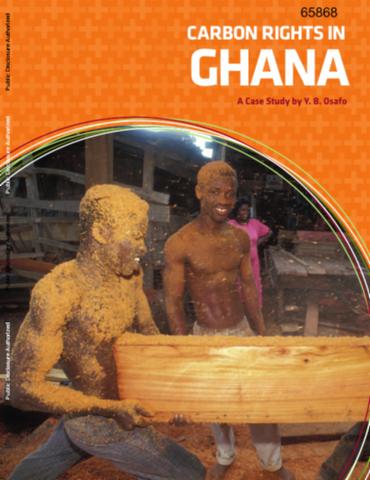Resource information
For Ghana's national REDD plus scheme to be viable, the rights to carbon or the emission credits generated must be clearly delineated, and be accompanied by equitable and efficient benefit sharing systems. There are a number of approaches that the State can use to determine whom to vest the right to carbon in. If defined as a natural resource, the state would be vested with the rights. If recognized as an ecosystem service, then the right to the benefits would be vested in the owner of the trees. In the latter case, the beneficiaries will differ depending on whether the trees are naturally occurring or planted. The main opportunities in REDD plus in Ghana are in the forestation and reforestation of forestlands and degraded lands. It is possible that REDD plus could provide additional resources to build on existing systems that promote tree planting on degraded land, such as the National Forest Plantation Development Plan (NFPDP), by providing additional incentives in reserve and off-reserve areas.


